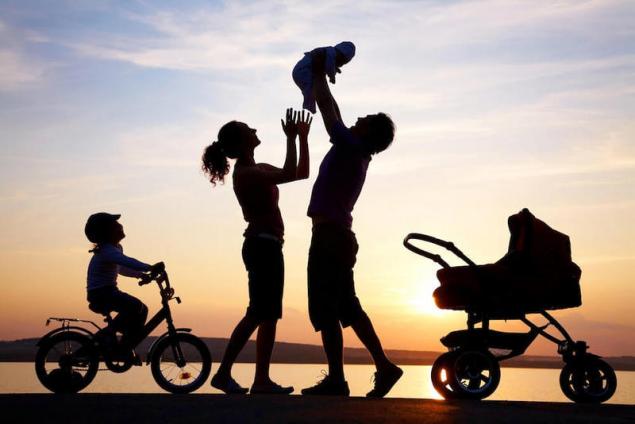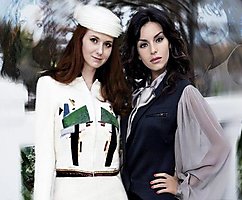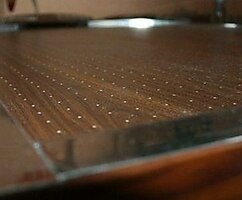Pedagogy of everyday life — for advanced parents
 Bashny.Net
Bashny.Net
Dear parents!
We invite you to talk about family education of children. Your attention is invited to the pedagogy of everyday life. Pedagogy for each day.
Do parents have to be psychologists, whether a family of psychological knowledge? Yes, we need a and very. Not only knowledge about how to communicate in the family, but also how to behave when it is difficult, when he made a mistake when rushed and was wrong.

In education, there can be recipes. So we invite our readers to be active, creative, like-minded allies in the search for optimal solutions to the problems of family education.
Characters teachers can be different, but the core one – the love of children, trust, and respect for human dignity.
It is important to pay attention to this moment. There is a perception that children today are not like before, therefore, it is necessary to educate them differently, based on different moral values. We believe that the moral compass of proven, relevant today because they help to live in dignity. But to survive the child will teach life. But knowledge of morality will give him the opportunity to make a choice: to be or not to be a good man in a critical situation.
Childhood and adolescence (3-15 years) – extremely convenient periods in a person's life for the education and formation of communication skills. The main and the leading role is given to the parents, family. Errors of family education expensive then the cost as loved ones, and society as a whole. Competent the parents ' behavior as when creating a General atmosphere in the family and the individual with communication with the child may be the key to his personal and public success in the future.
Step by step we will consider typical real-life situations, analyze them and share the experience of family education.
Offer to discuss such pedagogical tasks:
Part 1. What is Good and what is Bad
"Educate a child, while it is lying across the bench", – says the proverb.
"We all come from childhood" – echoes Exupery.

Classics of the genre was:
Crumb-son came to his father,
And asked crumb:
"What – Well
And what is " Bad?”
We criticize the child for soiled clothes. How to explain to him that it's wrong? For us "good" or "bad" depends on our personal experience, from generally accepted moral norms. But the kid has no experience, and he doesn't rely on that to decide good or bad of dirty clothes. If it be scolded, he may not will to do this anymore, to avoid unpleasant consequences. At the same time, this episode may kill in this nascent desire for research related to excavations or construction.
Child psychologists specifically investigated the formation of the child such concepts as "good" and "bad". They came to the conclusion that "good" for a child is something that is interesting and exciting.
But this connection of the terms "good" and "nice" is characteristic only for the early age. Gradually, the child gains experience, and now he believes that "good" is what you praise. If he performs the task, and praises him for it, he thinks he did the right thing, okay. Conversely, if it is blamed or punished, so he did a bad thing. The discomfort associated with the concept "bad."
For example, we are constantly accused of riot child for bad playing a musical instrument or for insufficiently fluent reading. The child begins to perceive the learning process as something that delivers only suffering, and therefore as something bad. Many of us in childhood, hated the music, and in school only because they were associated with unpleasant sensations.
Also interesting: the Right and Wrong praise
Learn to read fun
So instead of the child to impose its interpretation of what "good" and what is "bad", is much more effective to provide him with pleasant emotions, when he does something well, and unpleasant when it is bad.
The child's ability will develop so successful, how effective are the methods used to praise and blame.published
Author: Lyudmyla Andrievska
P. S. And remember, just changing your mind — together we change the world! ©
Source: detkiclub.com/articles/111990-psihologo-pedagogicheskiy-praktikum-dlya-roditeley-chast-1
We invite you to talk about family education of children. Your attention is invited to the pedagogy of everyday life. Pedagogy for each day.
Do parents have to be psychologists, whether a family of psychological knowledge? Yes, we need a and very. Not only knowledge about how to communicate in the family, but also how to behave when it is difficult, when he made a mistake when rushed and was wrong.

In education, there can be recipes. So we invite our readers to be active, creative, like-minded allies in the search for optimal solutions to the problems of family education.
Characters teachers can be different, but the core one – the love of children, trust, and respect for human dignity.
It is important to pay attention to this moment. There is a perception that children today are not like before, therefore, it is necessary to educate them differently, based on different moral values. We believe that the moral compass of proven, relevant today because they help to live in dignity. But to survive the child will teach life. But knowledge of morality will give him the opportunity to make a choice: to be or not to be a good man in a critical situation.
Childhood and adolescence (3-15 years) – extremely convenient periods in a person's life for the education and formation of communication skills. The main and the leading role is given to the parents, family. Errors of family education expensive then the cost as loved ones, and society as a whole. Competent the parents ' behavior as when creating a General atmosphere in the family and the individual with communication with the child may be the key to his personal and public success in the future.
Step by step we will consider typical real-life situations, analyze them and share the experience of family education.
Offer to discuss such pedagogical tasks:
- how to teach a child to distinguish between good and bad,
- how to increase the child's responsibility for their studies,
- how to develop leadership qualities
- how to learn to respect personal freedom of each family member.
Part 1. What is Good and what is Bad
"Educate a child, while it is lying across the bench", – says the proverb.
"We all come from childhood" – echoes Exupery.

Classics of the genre was:
Crumb-son came to his father,
And asked crumb:
"What – Well
And what is " Bad?”
We criticize the child for soiled clothes. How to explain to him that it's wrong? For us "good" or "bad" depends on our personal experience, from generally accepted moral norms. But the kid has no experience, and he doesn't rely on that to decide good or bad of dirty clothes. If it be scolded, he may not will to do this anymore, to avoid unpleasant consequences. At the same time, this episode may kill in this nascent desire for research related to excavations or construction.
Child psychologists specifically investigated the formation of the child such concepts as "good" and "bad". They came to the conclusion that "good" for a child is something that is interesting and exciting.
But this connection of the terms "good" and "nice" is characteristic only for the early age. Gradually, the child gains experience, and now he believes that "good" is what you praise. If he performs the task, and praises him for it, he thinks he did the right thing, okay. Conversely, if it is blamed or punished, so he did a bad thing. The discomfort associated with the concept "bad."
For example, we are constantly accused of riot child for bad playing a musical instrument or for insufficiently fluent reading. The child begins to perceive the learning process as something that delivers only suffering, and therefore as something bad. Many of us in childhood, hated the music, and in school only because they were associated with unpleasant sensations.
Also interesting: the Right and Wrong praise
Learn to read fun
So instead of the child to impose its interpretation of what "good" and what is "bad", is much more effective to provide him with pleasant emotions, when he does something well, and unpleasant when it is bad.
The child's ability will develop so successful, how effective are the methods used to praise and blame.published
Author: Lyudmyla Andrievska
P. S. And remember, just changing your mind — together we change the world! ©
Source: detkiclub.com/articles/111990-psihologo-pedagogicheskiy-praktikum-dlya-roditeley-chast-1
Tags
See also
25 advanced tricks parents: that's how you need to prepare meals for the kids!
22 brilliant reception for young parents that you should know.
And when will the money buy? or How to talk to kids about money
I'm NOT afraid!
Why sick kids: pediatric psychosomatics
If the children remain alive, it is a working model of the family!
Unpopular about motivation. Why the child does not learn?
Digital baby monitor – useful device for caring parents

















